SPOILER ALERT: This month’s authors all agree that if we want our children to be content, we parents need to model contentment for them. Groan. That’s not fun. That’s hard for flawed parents—at least for me. Thankfully, as Ann Jahns notes, we have a heavenly Father who forgives us, thanks to his Son’s sacrifice. So, why read this month’s articles? Because they give great, practical tips and insights, along with some much-needed reminders. At least for this mom.
How can we nurture contentment in our children’s hearts?
Contentment cannot be taught. If it were that simple and easy, we’d all have it all the time. Someone would just teach us the logic of it, and it would stick.
“Don’t you see?” we’d tell our kids. “Contentment makes the same sort of sense as 1+1= 2.” And then they’d nod their heads in agreement, won over by our irrefutable logic.
I’m pretty sure that’s not effective. Why? Because I know me. And I know my daughter. And if the Scriptures are true, I know you and your kids too.
If I’m going to tamp down the whirring, yearning, and chasing of my discontentment this Christmas, if I’m going to help my daughter do the same, there is only one force with both the consistency and the power to deliver. His name? The Holy Spirit. He alone will allow me to walk past the Apple store without a second thought. He alone will allow my three-year-old daughter to walk past racks of Christmas toys without throwing a tantrum. That’s just honest.
Keeping that in mind, here are a few quick thoughts on unleashing the Spirit:
• Unleash the Spirit on yourself. In the Word, you’ll find this incredible, mind-blowing God who has met every one of your most basic and most profound needs in totally overwhelming ways. Did I gush enough to make my point? The reality is that if we parents are not convinced we have everything we could possibly want or need in Christ, how could we possibly hope to share that same news with our kids? My daughter can smell a rat a mile away.
• Unleash the Spirit on your child(ren). See above. Just think, it’s December! What better picture is there than that mangy manger for teaching the love and promises of God?
• Live gratitude. Even shout it! I do, and I heartily recommend it. When I see another stunning Carolina crescent moon, my whole house knows about it—and who put it there! Sometimes at dinner, I’ll very intentionally ask my girls, “What are you thankful for today?” We do that at bedtime too. At the tender age of three, my daughter sometimes has a hard time getting past the zoo, but—hey—I don’t mind asking her, “Are you thankful for Jesus too? Why?”
• Ignore, squash, or redirect discontentment. Pray for wisdom on which of those triggers to pull in which circumstance and then pull it. Don’t be afraid to let the Spirit convict through you. Whatever you do, don’t ever indulge it. The human heart is a bottomless pit. One more thing will not satisfy. Only Jesus does.
• Finally, build these rhythms into your family life intentionally, practically, and concretely all the time. The human heart doesn’t magically heal from discontent after December 25 rolls by. Before we know it, 2016 will drop in on us, and once again in the new year we will find our hearts in need of Holy Spirit-provided contentment. I am also delighted, however, to tell you that once again in the new year you’ll reliably find the Spirit for yourself and your children in the words and promises of God.
Jonathan Bourman is a pastor at Peace, Aiken, S.C. He and his wife, Melanie, have a three-year-old daughter.
One of the most remarkable things about my husband and his family is their overwhelming sense of contentment in the Lord. Their attitudes have been such a blessing and example to me.
My husband and his siblings were raised in an openly Christian family in communist East Germany. They had very little in the way of material possessions and opportunities. How could people raised in such an environment become such content adults? His parents fostered this contentment.
Although my children are in a country overflowing with opportunities and lavish excesses, the example of my in-laws still applies as I seek to encourage contentment in my children.
My attitude. Contentment is born of thankfulness. Believers know that everything is a gift from our heavenly Father. I can look to God’s Word regularly. I will begin to know the character of God. This amazing God is on my side. My responses to difficult situations or material wants can be filled with God’s peace. I can turn all of my life’s challenges over to him and obediently await his leading.
My words. I can intentionally talk about gifts—spiritual and material—from God. I can take time to thank God aloud. I can lead my family as we thank God for one another and the special qualities that each family member has. I can memorize Bible verses, knowing God’s words will truly change my heart. I must talk often about the greatest gift ever given—that of the Savior.
My time. I can enjoy Advent and Christmas worship with my children. Though it can be a challenge with small kids, I can enjoy extra opportunities for praise and worship.
I can take time to enjoy family devotions each evening. Our family especially loves to sing “Away in the Manger” together each night before bed.
I can focus on the people parts of Christmas—get-togethers, games, baking—rather than the present parts. We spend some time preparing gifts for others, but I try to keep it at a minimum because I want this to be a small part of our celebration.
I can serve. There are so many ways that I enjoy serving, and my kids can sometimes serve as well.
My actions. I avoid having my kids make Christmas lists. I usually recycle toy catalogs before the kids see them. This keeps our “gimmes” down. It has never really been a part of our celebration, so my kids don’t miss it.
We don’t buy, buy, buy. This is not easy and sometimes I fail, but I want them to see that we are good stewards of our money.
So much of parenting is modeling. We can use our words, but in the end it is what our children see that makes the difference.
Wendy Heyn and her husband, Juerg, have three children.
In preparing to write about contentment, I issued myself a challenge. How long could I go without expressing my discontentment in any way? Well, I think I made it about ten minutes. Sadly, it’s not in our sinful nature to be content. Every day on this earth is a battle as we examine our possessions, home, looks, and situations, and find them lacking in some way. There will always be someone out there who is healthier, richer, prettier, more successful than we are. How can we cultivate a heart of contentment in our children—and ourselves—in that environment?
The Bible gives some marvelous examples of godly contentment. Take the apostle Paul, for one. The self-proclaimed “worst of sinners” endured some things in God’s name that would send most of us packing. He lived through shipwrecks, floggings, hunger, a snake bite, and prison. Throughout all those situations, he “learned to be content whatever the circumstances” (Philippians 4:11). He even gently reminded Timothy, “If we have food and clothing, we will be content with that” (1 Timothy 6:8).
Does my family have food? Yes. And we often waste it. Does my family have clothing? You bet. So much that we often puzzle over our options of what to wear.
So, at this time of year in particular, how do we as Christian parents teach our children to be content “whatever the circumstances”? It might sound simplistic, but I believe it is critical for us to model godly contentment in our homes by what we say and do. There are many ways to do this, but here are a few ideas:
• Guard our tongues. I’m ashamed to admit how often I have expressed discontentment in front of my boys. Our kids are listening and picking up on our attitudes—good and bad. How comforting that we can confess our failings to God and be reassured of his forgiveness.
• Seek out situations where we can help others and learn to value our blessings. What an impact on a family to volunteer in a mission setting or help our kids donate their gently-used possessions to those who need them more than they do. These teaching moments will have a greater impact than just saying, “We are very blessed.”
• Set aside the first portion of our earnings or chore money to give sacrificially to our church out of gratitude for God’s blessings. We can model that as God has abundantly blessed us with so much and especially given us a Savior. We, in thankfulness, should use our blessings to help advance the work of his kingdom.
• At the dinner table or in the car, ask, “What are you thankful for today?” Big blessings or small, they are all a gift from our loving Father, bestowed upon his undeserving children. How humbling.
As a parent, I constantly have to remind myself that by being discontent with what God has given me, I am in effect saying, “God, you don’t know what you’re doing.” I pray for the strength to model contentment for my boys. Although God doesn’t always give us what we want, in his perfect wisdom, he gives us exactly what we need.
Ann Jahns and her husband, Thad, have three sons, two in college and one in high school.
Do you have a manuscript, idea, or story from your own life you’d like to share for use in Forward in Christ or on wels.net? Use our online form to share it to our editorial office for consideration.
Get inspirational stories, spiritual help, and synod news from Forward in Christ every month. Print and digital subscriptions are available from Northwestern Publishing House.
Author: Multiple
Volume 102, Number 12
Issue: December 2015
Copyrighted by WELS Forward in Christ © 2021
Forward in Christ grants permission for any original article (not a reprint) to be printed for use in a WELS church, school, or organization, provided that it is distributed free and indicate Forward in Christ as the source. Images may not be reproduced except in the context of its article. Contact us
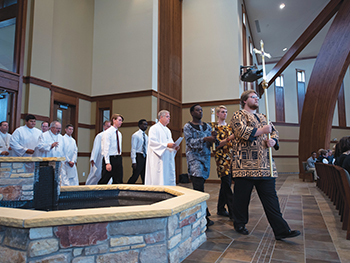

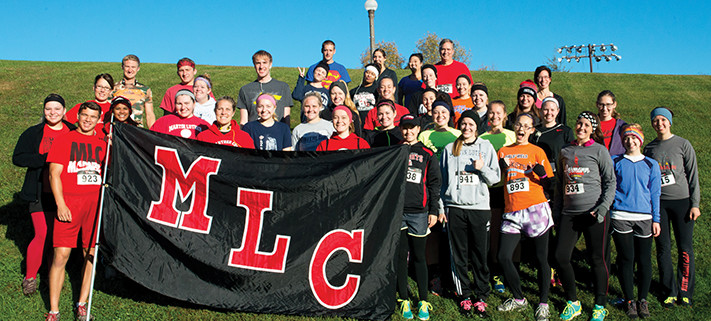
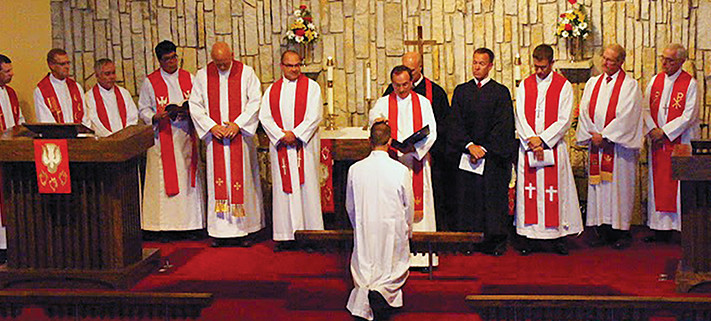
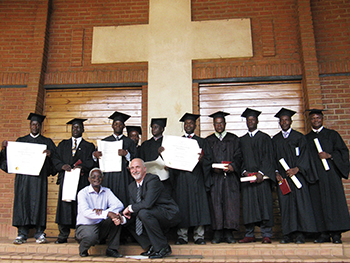

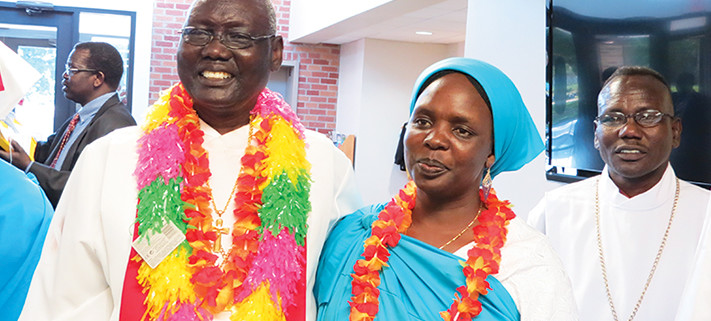

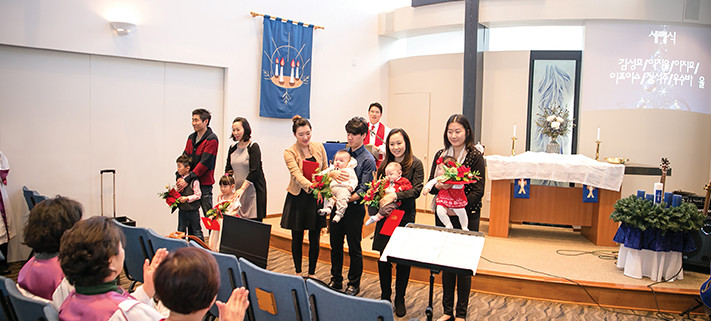
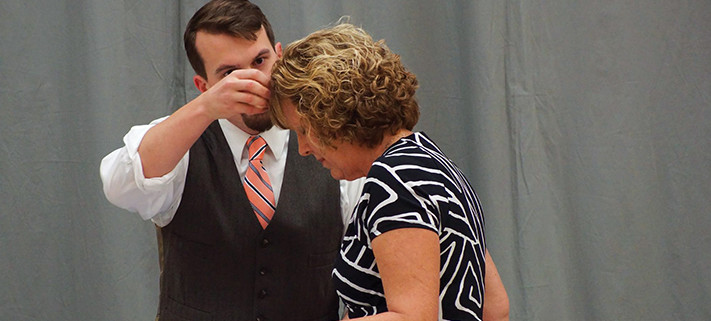
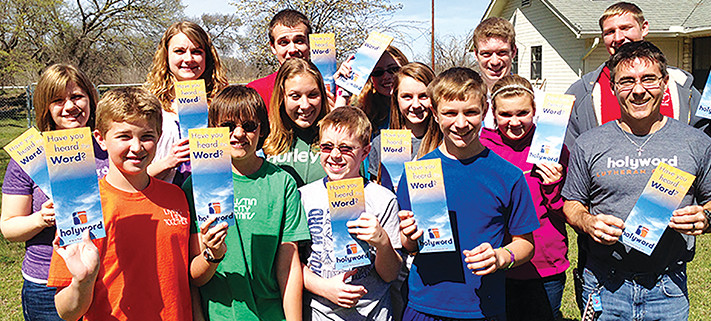

 What do you want on your tombstone? A curious question perhaps, at least until later in life. A very weighty question however as you ponder your life and what you have to show for it. Perhaps to rephrase the question you could ask “What is your legacy?” That is one of those questions for which an answer isn’t just living on the tip of your tongue. It’s deep. Very deep.
What do you want on your tombstone? A curious question perhaps, at least until later in life. A very weighty question however as you ponder your life and what you have to show for it. Perhaps to rephrase the question you could ask “What is your legacy?” That is one of those questions for which an answer isn’t just living on the tip of your tongue. It’s deep. Very deep.

